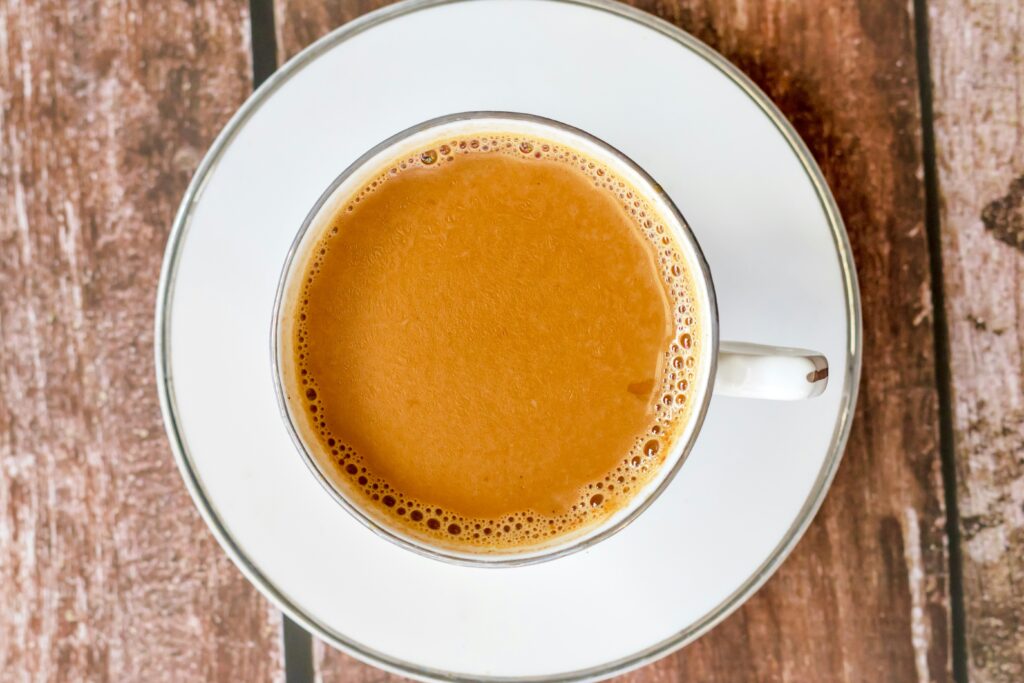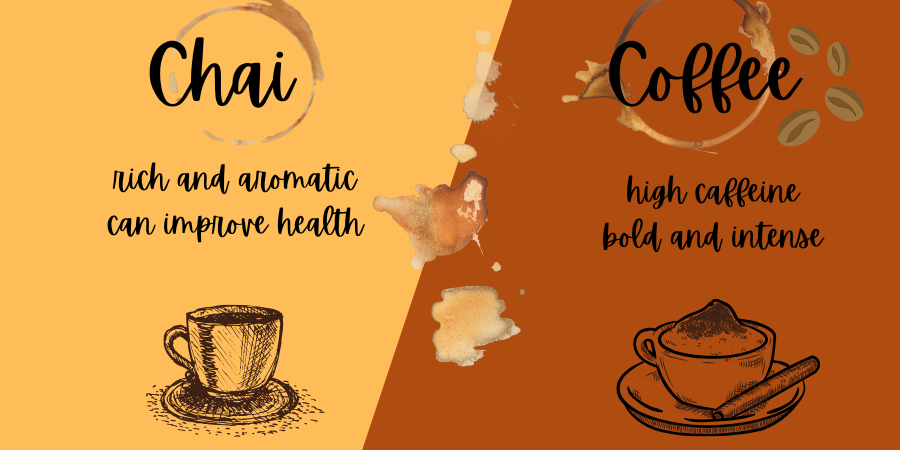A Fresh Look at the Ongoing Debate
In many homes across Pakistan, chai is more than just a drink—it’s part of daily life. The smell of spiced tea made with tea leaves, milk, spices, and sweeteners like honey or sugar fills the air during both the warm season and the cold season. Chai tea has been a favorite for centuries in Indian households because of its creamy texture, flavorful taste, and soothing feel. On the other hand, coffee is growing in popularity, especially in urban areas, where it fits into the fast-paced modern lifestyle. Both drinks have cultural value and are often enjoyed during conversations or work. Health experts, including doctors, dietitians, and nutritionists, have long discussed the benefits and drawbacks of both beverages.
Coffee is known for its high caffeine content, which can give a quick energy boost. But chai, which contains less caffeine, offers many health benefits. The spices in chai like cinnamon, ginger, cardamom, clove, and nutmeg help with gut health, metabolism, cognitive function, and skin health. Chai may also support detox, weight loss, cardiovascular health, and even help manage diabetes. It can reduce stress and help fight depression. Experts suggest choosing the right drink based on your habits, health, and personal needs. Drinking either one in the right way can help you enjoy their benefits while avoiding risks. Yoga and other healthy lifestyle choices can also go well with your beverage choices.
Which Is Better: Chai or Coffee?
Caffeine Content
When it comes to caffeine, coffee usually takes the lead. A regular cup of coffee has about 95mg of caffeine, depending on how it’s brewed. In contrast, chai—made from black tea leaves—contains roughly 40-50mg. This makes chai a gentler option for those sensitive to caffeine or looking to cut down. If you’re someone who enjoys a more balanced energy boost without the jitters, chai might be the better choice. The caffeine in both drinks affects people differently, so your personal tolerance plays a big role here.
Flavor & Look
Chai is a rich, aromatic, and flavorful drink that combines milk, sweeteners, and a blend of spices like cardamom, ginger, clove, and cinnamon. Its creamy texture and warming spices make it comforting, especially in the cold season. Coffee, on the other hand, is bold and intense, sometimes with hints of chocolate, nuts, or even fruit—depending on the roast and bean origin. Both have unique appearances—chai is light brown and creamy; coffee is dark, sleek, and often topped with a crema or foam.
Making the Drink
Brewing chai is an art. You bring tea leaves, spices, and milk to a gentle boil, then simmer with sweeteners like sugar or honey. It’s a slow, mindful process often tied to tradition. Coffee is quicker to prepare, especially with machines like a drip filter or espresso maker. Whether it’s a latte, cappuccino, or black—coffee offers versatility in less time. Yet for some, the slow ritual of making chai is part of its charm.
Health Benefits vs Side Effects
Chai is praised for its many health benefits. The antioxidants in black tea help fight free radicals, reducing the risk of cancer and improving skin health. The spices in chai are anti-inflammatory, helping with gut health, metabolism, weight loss, and even managing diabetes. Ginger and cardamom support digestion, and peppermint can ease IBS symptoms. It’s also linked to improved cardiovascular health, stronger immunity, and cognitive function.
Coffee also has its perks. It can enhance alertness, mood, and cognitive performance, and studies link it to a reduced risk of type 2 diabetes, Alzheimer’s, and Parkinson’s. But side effects include anxiety, insomnia, and digestive issues, especially if consumed in excess. Chai, while generally gentler, can still cause problems if overloaded with sugar or if someone is lactose intolerant.
Cultural and Social Value
In Pakistan, chai is more than a drink—it’s a cultural ritual. It represents hospitality, conversation, and comfort. It’s been part of Indian households for centuries, often enjoyed with snacks and shared stories. In urban areas, coffee has gained popularity, often tied to modernity, fast-paced lifestyles, and work culture. Cafés have become spaces for meetings and solitude alike, where a cup of coffee often symbolizes hustle.
Final Thoughts
Whether it’s sipping on a steaming cup of spiced tea during the warm season, or brewing a strong espresso to jumpstart your morning, both chai and coffee offer their own set of joys and benefits. Personally, I find comfort in the ritual of chai and love how it connects me to my roots. Yet, on busy days, a bold coffee helps me stay alert and focused. Whichever you choose, both drinks can be part of a mindful and healthy routine.

